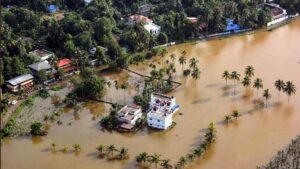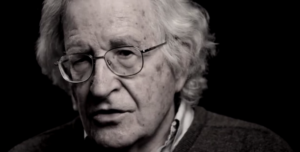
Noam Chomsky
Brazil is now headed toward a rocky presidential runoff vote on October 30, after its October 2 election produced no clear winner between far right populist president Jair Bolsonaro — an outspoken admirer of the brutal military dictatorship that came to power in 1964 by deposing a democratically elected president and lasted until 1985 — and Bolsonaro’s leftist challenger, Lula.
This is a tightly contested election, but polls are giving Lula a clear edge as he has received the endorsement of both the third and fourth finishers. Meanwhile Bolsonaro has indicated on numerous occasions in the past that he will not accept the election result if he loses.
The election will determine the future of Latin America’s powerhouse — a country with the 12th largest economy in the world that is rich in a variety of natural resources and home to the world’s biggest rainforest, the Amazon. Brazil is also a country of extreme inequality, awash in corruption and violence.
What is at stake in the runoff election, both for Brazil and the world at large, is brilliantly elucidated by Noam Chomsky in the exclusive interview for Truthout that follows. Chomsky is presently in Brazil and has been following very closely both the election campaigns as well as overall developments in the country.
Chomsky is internationally recognized as one of the greatest public intellectuals alive, the founder of modern linguistics and one of the most cited scholars in the history of the world. He is institute professor and professor of linguistics emeritus at MIT and laureate professor of linguistics at the University of Arizona. He has published more than 150 books in linguistics, politics and current affair, history and political economy, media studies, U.S. foreign policy and global affairs.
C.J. Polychroniou: Noam, the eyes of the world were focused on Brazil’s presidential election a couple of weeks ago, which pitted incumbent Jair Bolsonaro, a divisive far right populist, against former leftist president Luiz Inácio Lula da Silva, who had served years in prison on charges of money laundering and corruption in a controversial trial. Neither candidate managed to win more than 50 percent of the vote, so there is going to be a runoff election at the end of the month. Why does Brazil’s election matter so much to the world?
Noam Chomsky: A century ago, Brazil was declared to be “the Colossus of the South,” set to lead the hemisphere along with “the Colossus of the North.” Since then, the northern Colossus has replaced Britain as the virtual ruler of the world, extending its power far beyond the dreams of what is now Washington’s junior partner. The southern Colossus has stumbled. It is important to understand how.
In the 1950s, decolonization was beginning, and the former colonial societies were not only seeking independence but also advances toward social justice and peaceful settlement of international disputes. The non-aligned movement was formed. Other initiatives were beginning. All of this was anathema to the U.S. and its imperial predecessors.
Brazil was part of the global effort under Kubitschek and in the early ‘60s, Quadros and Goulart. The Kennedy administration was deeply concerned with these global developments, particularly in the traditional U.S. preserve in Latin America.
In 1962, in a decision of historical importance, JFK shifted the role of the Latin American military from “hemispheric defense” to “internal security,” meaning war against the population. The effects were graphically described by Kennedy-Johnson Director of Counterinsurgency Charles Maechling: The decision led to a shift from toleration “of the rapacity and cruelty of the Latin American military” to “direct complicity” in their crimes, to U.S. support for “the methods of Heinrich Himmler’s extermination squads.”
A primary concern was Brazil, Latin America’s powerhouse. The JFK administration helped prepare the ground for a 1964 military coup that overthrew the flourishing Brazilian democracy shortly after Kennedy’s assassination.
The destruction of democracy was welcomed by Kennedy-Johnson Ambassador to Brazil Lincoln Gordon as a “democratic rebellion,” “a great victory for the free world” that should “create a greatly improved climate for private investments.” This democratic rebellion was “the single most decisive victory of freedom in the mid-twentieth century,” Gordon continued, “one of the major turning points in world history” in this period.
Gordon was right. The vicious military junta in Brazil was the first of the neo-Nazi terror-and-torture National Security States that then spread over Latin America, a plague that reached Central America under Reagan’s murderous regime.
By the 1980s, the plague was declining in South America, less under U.S. control. In Argentina and Uruguay, truth commissions exposed the horrors of the military regimes. Not in Brazil. The democratization process largely evaded the topic, apart from a Church-based inquiry. The result is that many younger Brazilians are unaware of the terrible crimes, or not concerned. That enables a great admirer of the military regime like Bolsonaro to condemn the Brazilian generals for their “weakness”: They did not murder 30,000 people as their associates in Argentina did.
Plumbing the depths of depravity — a considerable achievement for this Trump admirer — when voting for the fraudulent impeachment of [Workers’ Party] Dilma Rousseff, Bolsonaro dedicated his vote to her torturer, the chief torturer of the junta.
All of this passes with little comment, something else we are more than familiar with in the U.S.
The crushing of Brazilian democracy was one stage of a much broader process that is one of the most important and least discussed features of modern history: beating back the efforts of the former colonies to find a place in the global system. That idea was utterly intolerable to the U.S., which led the western campaign to cut off this departure from good order, also virtually wiping it out of history.
Brazil resumed the process in the new century. It became one of the most respected and influential world powers during Lula’s term in office (2003-2010), a “golden decade” in Brazil’s history in the eyes of the World Bank. Together with his Minister of Foreign Affairs Celso Amorim, Lula also led efforts to gain a voice for the Global South more generally. These positive developments went into reverse during the erratic and authoritarian Bolsonaro years.
The potential remains. The country has abundant resources that the world desperately needs. It is culturally and technologically advanced in many areas. It suffers under the Latin American curse of an ultra-privileged elite that has little commitment to the welfare of the country, a major reason for the sharp divergence in development between resource-rich Latin America and resource-poor East Asia in the past years, as economic historians have discussed.
Cooperating under leadership based on progressive popular movements, the two Colossi could be leading the world toward a brighter future. In a Trump-Bolsonaro alliance, they would be dragging the world to an abyss.
The most compelling immediate concern is the fate of the Amazon forests, mostly in Brazil. It has long been understood that if current trends persist, this core component of the “lungs of the earth” will turn to savannah, unable to produce enough moisture to sustain itself. A major carbon sink that has been protecting all of us will turn to a carbon producer, impelling us toward catastrophe.
As in many other cases, the time scale of this tragedy has been severely underestimated. Brazilian researchers have shown that it has already begun to happen in some regions, which are reaching irreversible tipping points. The threat to survival has been sharply accelerated by Bolsonaro’s support for illegal logging, mining, agribusiness expansion, and destruction of native reserves and the many tribes that inhabit them. Formally, they are protected under laws that are being cast aside in the interests of short-term profit and power.
Though not of course confined to Brazil, the crime against humanity is particularly grave there because of the scale. And it is particularly critical right now because the fate of the Amazon, and all that it entails, will be decided on October 30, the runoff for the elections. A Bolsonaro victory would likely doom the Amazon. A Lula victory might be able to save it, averting a disaster for Brazil and a catastrophe for life on earth.
The good news is that in the first round Lula came close to victory, much as polling had predicted. Collaboration with a center-left party rather close to Lula’s Workers’ Party would have led to victory. This and broader coalitions are now forming and might lead to victory on October 30.
The bad news is dual. Bolsonaro’s vote was far beyond what polling predicted, and his candidates swept other offices: governors and parliament particularly, meaning that Lula’s hands will be tied even if elected. The far right surge even included such monstrous figures as Ricardo Salles, the point man for Bolsonaro’s campaign to enrich the criminals who were destroying the Amazon under his watch.
A week later, an election will take place in the northern Colossus with similar stakes but of even greater import given power relations. The denialist party is poised to add Congress to its conquests. The most reactionary Supreme Court in memory is already firmly in its hands and is likely to grease the way to the campaign to turn the country into an Orbán-style “illiberal democracy” where a minority party of the far right will be able to maintain power and drive the country to an extremist Christian nationalism. None of this is at all concealed.
That grotesque outcome will, in fact, not matter much as environmental destruction goes out of control under the hands of those dedicated to enhancing corporate profits whatever the human consequences.
In answer to the question, there is a fateful week ahead.
Opinion surveys had shown Lula leading Bolsonaro by more than 10 percentage points, but the race turned out to be much tighter than anticipated and, in fact, Bolsonaro swept the state and senate races. What happened?
We have to withhold judgment until the facts are in. One possibility is that what happened is similar to what has been studied in depth in the U.S.
In both counties, the huge evangelical vote is by now fairly solidly in the hands of the far right and its propaganda messages about the fires of hell if the accomplice of the devil triumphs. In the U.S., that traces back to the GOP campaigns of the ‘70s to shift to “culture wars” to gain political power.
Trump voters regard pollsters as part of the hated elite that is supposedly leading the “Great Replacement” and grooming children for sexual perversion (not an exaggeration of current right-wing discourse) and therefore do not respond to them accurately if at all. That is very likely a factor in Brazil as well. There may well be studies of the matter, but I don’t know of them.
Another factor is suggested by the fact that many of the right-wingers elected seem to be little known, meaning that voters may have not even been aware of their programs — a fact familiar in the U.S. as well, as extensively documented. Pre-election, Bolsonaro was lavishly distributing state funds to potential voters, using a mysterious “secret budget” of public funds, possibly supplemented by private funds from wealthy supporters in Brazil and the U.S. What was the impact? We can surmise, but do not know.
What we do know is that the stakes are very high.
The election campaign was marked by a series of violent incidents between supporters of Bolsonaro and Lula, and it’s highly unlikely that the climate will be different now that the two candidates are heading to second round. What’s the main cause of the extreme polarization that characterizes contemporary Brazilian society?
I should defer here to people who know far more about Brazil than I do.
Some aspects of the polarization are not obscure. One was already mentioned. The polarization goes far back. Inequality is deeply rooted. A very rich mostly white minority lives in luxury not far from miserable slums, where people lack access even to food and water. Furthermore, the rich have little commitment to the society. They evade taxes, export their capital, import luxury goods and have second homes in Paris — a pattern increasingly familiar in the U.S. after 40 years of the brutal class war misleadingly framed in terms of market worship.
On the surface, Brazil gives the impression of a well-functioning multiracial society, far more so than the U.S. That’s on the surface. Behind the veil, the white rulers are deeply racist and have harsh class prejudice. One reason for their contempt for Lula, scarcely concealed, is that he is a mere industrial worker lacking formal education. Not the “right kind of person” to be in the presidential palace. Even a white face doesn’t protect him from the contempt, in his case class-based, and deepened by his initiatives at social inclusion of Afro-Brazilians and Indigenous communities as well as social welfare for the undeserving poor. Again, the resonances in the U.S. are too obvious to discuss.
The polarization may be taking sharper forms today, as is happening in much of the world, but it is drawing from social pathology that runs deep.
Bolsonaro has long raised doubts about Brazil’s electoral process. Is it likely that he might refuse to go if he loses the runoff vote at the end of the month, especially with his party having the most seats in both chambers of the congress? How far will Brazil’s military back him?
We can speculate idly or devote our efforts to restricting the possibilities. Brazil is not the U.S., but the questions are not unfamiliar there. Both countries are awash in guns, a recent phenomenon in Brazil as Bolsonaro has opened to arsenals, overwhelmingly to his supporters. There are heavily armed militias that control areas that are barely accessible to the police. Civilian control of the military, and the major police forces, is less firmly institutionalized than in the U.S. – where questions also arise.
In the U.S., large parts of Republican voters have called for violence if it is necessary to “save the country” from the devils intent on destroying the white race, Christianity, the family…. There are similar elements in Brazil. Both countries are plagued by demagogues with the talent to tap the ugliest currents that rot the society from below. They are visible, prominent, influential, close to power.
If power is allowed to fall into their hands, we will be facing the nightmare of a Western Hemisphere in the hands of the two Colossi bent on driving to world to destruction.
>Copyright © Truthout. May not be reprinted without permission.
C.J. Polychroniou is a political scientist/political economist, author, and journalist who has taught and worked in numerous universities and research centers in Europe and the United States. Currently, his main research interests are in U.S. politics and the political economy of the United States, European economic integration, globalization, climate change and environmental economics, and the deconstruction of neoliberalism’s politico-economic project. He is a regular contributor to Truthout as well as a member of Truthout’s Public Intellectual Project. He has published scores of books and over 1,000 articles which have appeared in a variety of journals, magazines, newspapers and popular news websites. Many of his publications have been translated into a multitude of different languages, including Arabic, Chinese, Croatian, Dutch, French, German, Greek, Italian, Japanese, Portuguese, Russian, Spanish and Turkish. His latest books are Optimism Over Despair: Noam Chomsky On Capitalism, Empire, and Social Change (2017); Climate Crisis and the Global Green New Deal: The Political Economy of Saving the Planet (with Noam Chomsky and Robert Pollin as primary authors, 2020); The Precipice: Neoliberalism, the Pandemic, and the Urgent Need for Radical Change (an anthology of interviews with Noam Chomsky, 2021); and Economics and the Left: Interviews with Progressive Economists (2021).
 Hildeke stond in de kast met reisverhalen in de boekwinkel waar ik het nieuwe boek van Lieve Joris kocht. Ernaast stond nog een exemplaar van Terug naar Neerpelt.
Hildeke stond in de kast met reisverhalen in de boekwinkel waar ik het nieuwe boek van Lieve Joris kocht. Ernaast stond nog een exemplaar van Terug naar Neerpelt.



